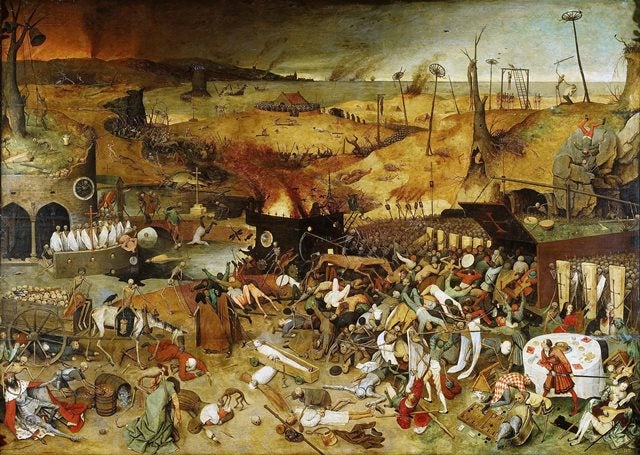Leaving The Bug Out Location To Help Family Members
Kevin Felts 01.24.19

Over the centuries historians noted during outbreaks of the Black Death (e.g. 1347 – 1351) people would flee the cities in an attempt to reach the country side. A great number would die on the side of the roads, in the fields, and under bushes.
What is not talked about very much is people leaving the somewhat safety of a rural area and going to a city. Why would someone go to an urban area during a plague? To help friends and family members.
In this article we will be using the term plague to generically describe any disease outbreak, and not just the Bubonic Plague.
Up until recent times people moving from one location to another were limited to either walking, or a horse. For example, let’s say a person found out a town where their family lived had an outbreak of the plague. It would take that person some time to get to the town, and then some time to get back. The length of time depended on whether the person was walking, or riding a horse, and distance traveled.
Since horses were expensive items, chances are most peasants would have to walk great distances to check on family. This meant if the person were infected, there was a chance they would die before returning to the area they came from.
Then along came the train, automobile, and eventually the jet airliner. Now we can cover great distances in a matter of hours. Access to fast travel creates a problem with people entering plague outbreak areas, then returning home.
When the next plague comes around people living in rural areas face two problems:
- People fleeing the city and going to rural areas.
- People leaving rural areas to evacuate family members trapped in urban areas.
Leaving the bug out location, going to an urban area, then returning home creates a targeted delivery system.
With modern transportation if the person became infected, they may be able to return home days before symptoms appear. Compound that with the possibility of someone being infectious days before symptoms appear, and the disease spreading to people at the bug out location.
Take the flu for example, the CDC says a person could be infectious one day before symptoms appear.
Thus we are left with a question of compassion, vs. risking our safety in order to help friends and family members trapped in an urban area. How many of us would ignore family members asking to be evacuated? Then there is the question of elderly or disabled family members who could not evacuate on their own.
Natural disasters are different than disease outbreaks. We know when and where a hurricane is going to make landfall. We can see the devastation left by an earthquake or wildfire. Those are visual disasters and we can see what we are up against.
We can not see a viruses or bacteria floating in the air. We can not see if someone is infected before symptoms appear.
Do we leave family members in urban areas to face a SHTF situation alone, or do we help them?